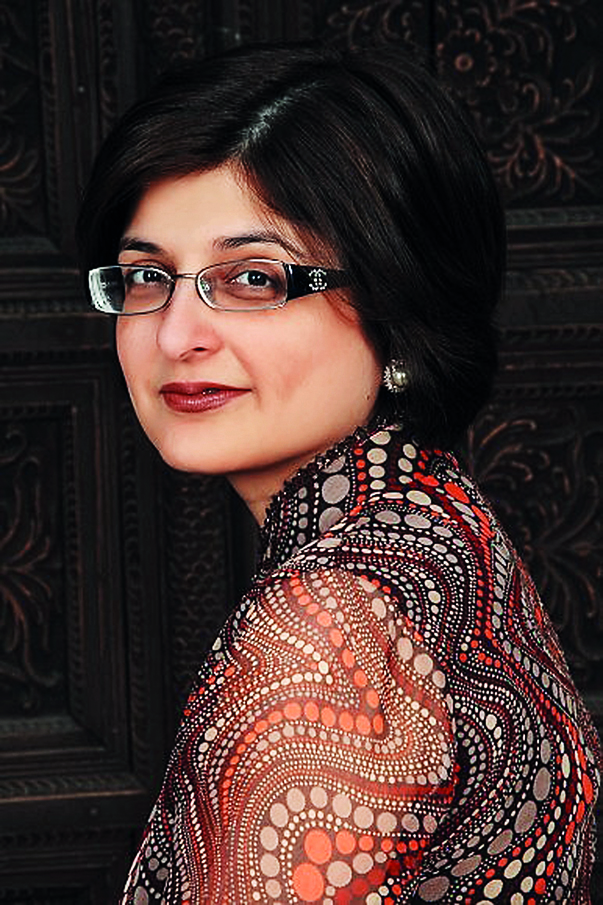Time of India-The Interviews Blog : ‘Imran Khan sounded statesmanlike regarding better ties with India … but he has often gone back on statements’ tells Farahnaz Ispahani
Farahnaz Ispahani is Global Fellow at Washington’s Wilson Centre, former member of Pakistani parliament (from Pakistan People’s Party) and former media adviser to the Pakistani president. She spoke to Rohit E David on Imran Khan being set to become the new prime minister of Pakistan, Nawaz Sharif’s decision to come back to the country, and the role the military will continue to have in Pakistani politics:

Farahnaz Ispahani
How will Imran Khan becoming PM change the scenario in Pakistan?
Farahnaz Ispahani: Imran Khan has won the election amidst the most serious and blatant charges of election rigging in Pakistan’s political history. Khan’s arrogant personality and inability to forgive will make it difficult for him to take the opposition parties along – and with his slim lead this will create an extremely divided parliament. And, potentially weaken the ability of the government to make decisions and then implement them. The scenario in Pakistan is already fraught with tension. Frequent terror attacks by extremist groups, increasing sectarianism, an economy on the brink of collapse and Khan’s openly espoused contempt for India and the United States will lead to an even weaker nation.
Do you feel that Nawaz Sharif’s return to Pakistan was a blunder?
Farahnaz Ispahani: In retrospect it was ill advised. He was basing his return on assumptions that failed to occur. I believe Nawaz Sharif was removed from his post as prime minister unconstitutionally as his disqualification preceded his trial. At the time of his disqualification, no court of law had carried out a trial and the Supreme Court acted at the military’s behest. As for his return, like any other citizen of Pakistan he had the right to come home and participate in the democratic process. Sharif also has millions of supporters who he thought needed his presence to lead the election.
How will Pakistan’s relation with India change with Khan as PM?
Farahnaz Ispahani: Imran Khan was brought to power by the establishment. Military, intelligence agencies, judiciary and the election commission of Pakistan. I believe, the military, his biggest benefactor, will make him toe the line with India. And, if Khan tries to act in a more open manner with India he will feel the power of the boot very quickly. In any case statements made by him and his party members in the past and present indicate there is contempt among PTI leaders regarding Pakistan’s largest neighbour.
Will Pakistani army have a larger say in the daily working of parliament?
Farahnaz Ispahani: Pakistan army worked very hard to get Khan elected. And, did so in a very obvious manner. Therefore, they will expect him to be grateful and continue to follow their lead vis-a-vis India and the United States – and leave all the foreign, defence and economic policy decisions in their hands.
Has Pakistan rejected hardline Islamist parties?
Farahnaz Ispahani: Pakistan’s hardline Islamist parties do not usually do very well at the ballot box. Khan’s nickname of ‘Taliban Khan’ and his support of the blasphemy law indicates that he will, if not outrightly, support the Islamist parties. Because he shares some of their beliefs he may want to work with them as prime minister. In his first address to the nation Imran Khan sounded positive and statesmanlike regarding better ties with India and the United States but he has often gone back on previous statements. In any case, even if we grant him the best will in the world, most of his speech will not be acted upon. The military establishment will ensure that.
Is it the end of the road for Bilawal Bhutto?
Farahnaz Ispahani: Bilawal Bhutto ran the PPP election campaign this cycle and he retained the home base of Sindh province. He has also contested and won his first seat in the National Assembly of Pakistan. Most analysts have said Mr Bhutto-Zardari conducted himself with maturity at the young age of 29. The real question is whether the PPP will remain the regional party his father Asif Zardari has made it – or could it become a federal/national party again? Too soon to say.
Election authorities had granted military officers broad powers inside polling centres. Do you feel the elections were rigged?
Farahnaz Ispahani: Yes. I do believe the elections were rigged. Openly and blatantly. Every major opposition party has commented on it including former Punjab chief minister (and Nawaz Sharif’s brother) Shehbaz Sharif. The election was marred by allegations of military meddling and pre-poll rigging. Pakistan’s military, intelligence services, judiciary, and the election commission have interfered directly in the past as well. The ‘establishment’ as Pakistanis refer to it has created political alliances and propped up politicians throughout Pakistan’s political history. But this time, all pretence was abandoned.
Pre-poll rigging was carried out through media censorship, the targeted disqualifications of leading politicians, and the mainstreaming of terrorists. Election day continued with even more flagrant manipulation.
Note: The Interior was Published by “Time of Indian” and the link to the Interview is Interview of Farahnaz Ispahani with Time of India